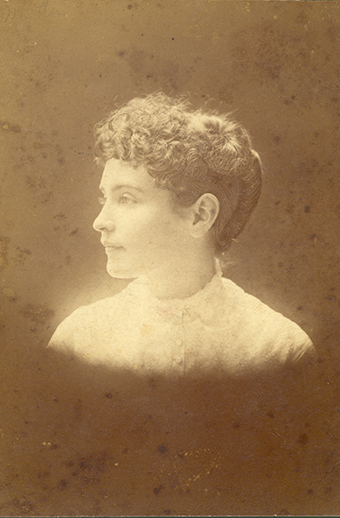Dear Annie,
Happy birthday! Today, we celebrate your legacy and excellence as an educator. You insisted that your student, Helen Keller, could learn and accomplish just as much as any seeing and hearing child could — and you were right.
You were a tough teacher — when Helen misspelled a word in an essay or letter, you made her rewrite the entire text — but you also had a finely tuned insight into a child’s psychology. You instantly recognized that Helen was a very bright child who just needed the tools to communicate with the world around her.
You were critical of the conventional teaching methods of your day. When you were honored with a "Teacher’s Medal" at the Panama-Pacific International Exposition in San Francisco, you took the opportunity to admonish the teaching establishment and the status quo:
Every child begins life an eager, active little creature, always doing something, always trying to get something that he wants very much. Even before he can utter a word, succeeds in making known his desires by cries and grimaces. He invents and devises ways to get the things he wants. He is the star performer in his little world; he is the horse, the coachman, the policeman, the robber, the chauffeur, the automobile. He will be anything that requires initiative action. The one thing he never voluntarily chooses to be is the grown up personage that sits in the car and does nothing.
Our education system spoils this fine enthusiasm. We impose the role of passenger upon the child, and give him no opportunities to exercise his inborn creative faculties. The alluring joy of creation is not for him. He is deluged with accomplished facts. Naturally, he becomes mischievous and difficult to manage. He is compelled to defy his teachers in order to save his soul.
Our schools give no encouragement to assimilation, reflection, observation. They kill imagination in the bud. They uproot the creative ideals of childhood and plant in their place worthless ideals of ownership. The fine soul of the child is of far greater importance than high marks, yet the system causes the pupil to prize high grades above knowledge, and he goes from the schools into his life work believing always that the score is more important than the game, possession more praiseworthy than achievement.
You practiced what you preached. Early on, you took Helen outdoors and let her experience the physical world around her. You turned whatever fascinated her into an opportunity to learn. It is unsurprising that Maria Montessori, a woman whose work you had studied, would come to praise your innovative teaching methods.
For the past 13 years, I have worked as the keeper of your and your pupil’s archival collection and legacy at AFB, and my respect for you has never stopped growing. Perhaps your own very difficult childhood resulted in an extraordinary empathy and understanding that all children, regardless of the circumstances of their birth, have the capability to learn if given the chance, as well as the right to a rich and enjoyable education.
Generations of children are still thanking you. Happy Birthday, Ms. Sullivan!
Image: Three-quarter profile of Anne's head and shoulders. Her hair is parted in the center, pulled back, and braided into a bun at the back of her head. Her dress has a round decorative collar. Circa 1881.
